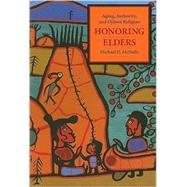Honoring Elders
, by McNally, Michael David- ISBN: 9780231145039 | 0231145039
- Cover: Paperback
- Copyright: 7/1/2009
Like many Native Americans, the Ojibwe have a high regard for the wisdom, authority, and religious significance of old age, but this respect does not come easily or naturally. The Ojibwe constitute eldership through a sophisticated system of narrative traditions, moral teachings, and practices of ritualized decorum, working hard to preserve a place for their elders at the center of their ethical and religious lives. Even as the dispossession of land, language, and culture has threatened Ojibwe communities, and as assimilation policies have specifically targeted tradition and the elders who embody it, Ojibwe communities have remained resourceful and resolute in their continued esteem for elders and their authority. If anything, such challenges have accentuated the authority of elders, known in one formulation as giche anishinaabeg, or "great persons."Grounding his study in archival and community-based research, Michael D. McNally follows the making of Ojibwe eldership over time. More than mere etiquette, deference to older men and women is part of a broader moral, aesthetic, and cosmological vision, functioning as a generational exchange animating bimaadiziwin, or the balanced, ongoing circle of life. Historically, the practices of eldership have played a crucial role in the survival of the Ojibwe as they integrate into wider American society, and McNally illustrates how tribal elders have negotiated continuity and change. He argues that the tradition of authority and the authority of tradition frame a decidedly indigenous dialectic, eluding analytic frameworks of invented tradition and na´ve continuity. Demonstrating the rich possibilities of treating age as a category of serious social analysis, McNally compellingly argues that the "elder" belongs alongside the priest, prophet, sage, and other figures in the sociology of religion.







